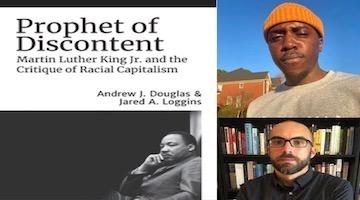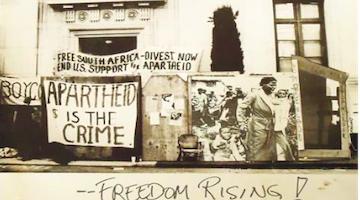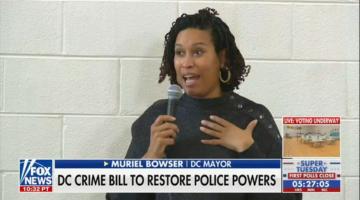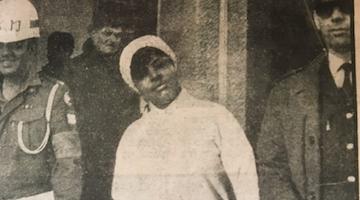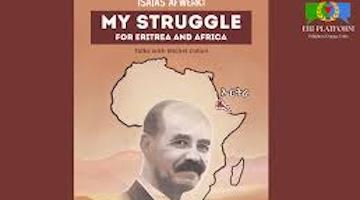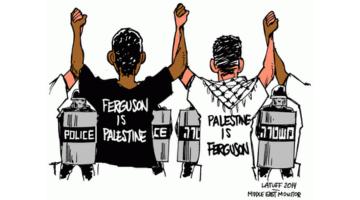“We often reduce Black politics to integrationism vs nationalism, but freedom dreams have always been more robust and complex.”
In this series, we ask acclaimed authors to answer five questions about their book. This week’s featured author is Imani Perry. Perry is the Hughes-Rogers Professor of African American studies at Princeton University. Her book is May We Forever Stand: A History of the Black National Anthem.
Roberto Sirvent: How can your book help BAR readers understand the current political and social climate?
Imani Perry: Although this book is a history, the history it presents is instructive for the present moment. It is a history of the song and its context: Black associational life in the 20thcentury. I pay close attention to how ritual practices of Black civic, academic, and political organizations, like singing the anthem together, nurtured a sense of common purpose and interdependence of the sort that is essential for organizing. I also think seeing the centrality of schools in the history of Black organizing in the segregated south that I describe in the book is important for thinking about organizing efforts now. Black intellectuals of every sort were intimately involved in the process of developing ideas about what Black children should know, and how to educate them in ways that challenged American racism. I believe, and attempt to show, that this community effort of cultivating Black children is what provided the foundation for the freedom movement of mid to late 20th century. I also hope that my effort to show the range of political ideologies that have existed in Black organizing since the very beginning of such a concept, will dispose readers of the belief that Black people have a singular way of political organizing. This is relevant today because often we reduce Black politics to integrationism vs. nationalism, and freedom dreams have always been more robust and complex. Part of what I find so remarkable about Lift Every Voice and Sing is that it resonated deeply with Black folks across the political spectrum, and over time as movements changed and grew.
Finally, and this may be the most important lesson of the book, I think our current difficulties when it comes to organizing have a great deal to do with the loss of a robust associational and institutional life that began in the 1980s in earnest. If we are looking to build a sustained large scale movement, it is essential to rebuild those networked connections in Black communities.
What do you hope activists and community organizers will take away from reading your book?
My answer may sound like a cop out, but honestly, I hope that they take away whatever is useful. I am not an organizer, but I was raised by organizers and intellectuals. And their model taught me that good scholarship can and should be in the service of freedom fighting because it either reveals how the structures and systems and practices they’re fighting against operate, or because it offers us ways of thinking and doing that move us closer to liberation. I hope this book does the latter. I have been studying Black life and politics for the majority of my life and still there were many times in doing the research for this book that I was brought to tears by fresh encounters with the brilliance and courage of our ancestors. I will know I have done something meaningful with this book if it can have that impact on some organizers as well.
We know readers will learn a lot from your book, but what do you hope readers will un-learn? In other words, is there a particular ideology you’re hoping to dismantle?
First and foremost I hope that readers will unlearn the idea that every formal practice that Black people have engaged historically, or continue to engage in, is a form of “politics of respectability.” As I describe Black academic and civic life, I draw the distinction between Black Formalism, and the politics of respectability as Evelyn Brooks Higginbotham described it. Respectability politics are a form of appeal made to the larger white society as if to say, “Despite what you say, we are respectable people and ought to be granted our rights.” Black formalism was a practice that took place within Black communities, not as an appeal to the larger what society, but as part of the creation of ritual cultures and sacred occasions in Black life. Moreover, it was and is solidly grounded in Black working class culture and not imposed from above by elites.
“The idea that Black people have not valued education is simply untrue.”
I also sincerely hope readers unlearn this pernicious myth that Black people don’t value education. It simply isn’t true and it never was true. And once you attend to not just the struggle to gain access to education but the deliberateness and care of building Black schools and curricula and children’s literature, and all the organizations that were dedicated to doing this at both the local and national level over so many decades, it becomes completely apparent that the idea that Black people have not valued education is simply untrue. Further, I hope that it leads readers to the great work done by Black educational historians like James Anderson, Vanessa Siddle Walker and Heather Williams.
Who are the intellectual heroes that inspire your work?
Of course James Weldon Johnson and Rosamond Johnson, who wrote and composed the anthem are central inspirations for this book, as are Victoria Earle Matthews, W.E.B. DuBois and Carter G. Woodson who each played a role in nurturing the growth and development of the song in Black communities. But most of all, much more than any of these great individuals, the heroes of this book are the people. This song didn’t become an anthem because intellectuals made it so; it became an anthem because Black folks embraced it, and circulated it, and incorporated its message into daily life. Those many thousands of people who sang the anthem and assemblies and graduations, and protests are what carries the book
I have told many people I knew how to write this book, not because of anything I learned in my formal education, but because of what I had learned amongst my people. I knew what the song meant, and how it fit into our lives, and that became my research guide. That is what told me where to look for my archive.
One of my hopes is that among my contributions to the field of Black studies will be the articulation of the ways in which Black cultural and social life has always been rich with political ideas and arguments, and that in the Americas Black aesthetics are inseparable from questions of justice.
In what way does your book help us imagine new worlds?
The book ends speculatively. I don’t know whether Lift Every Voice and Sing will be sustained over time. Fewer and fewer young people grow up singing it. And those of us who grew up with the song have fewer occasions upon which to sing it. But whether or not this particular song remains an anthem or becomes an artifact of the past, I know that we need the kinds of rituals that the song was a part of. There is something particularly powerful about standing shoulder to shoulder with others, believing in a common purpose and singing together. So, and I apologize for being a bit redundant, I hope the readers think after finishing this book: How can I be a part of rebuilding what held Black communities together? I hope readers imagine how these sorts of practices ought to be integrated into all of our justice and freedom work. I hope that witnessing the incredible work Black communities did in the face of the most brutal phase of Jim Crow, inspires. So often today we approach the world with a sense of resignation and defeat. But if those who lived with the constant threat of the lynching rope continued to fight, we must as well.
Roberto Sirvent is Professor of Political and Social Ethics at Hope International University in Fullerton, CA. He also serves as the Outreach and Mentoring Coordinator for the Political Theology Network. He’s currently writing a book with fellow BAR contributor Danny Haiphong called AmericanExceptionalism and American Innocence: The Fake News of U.S. Empire.





